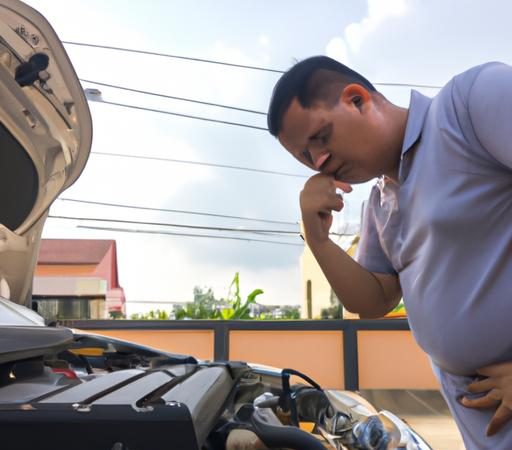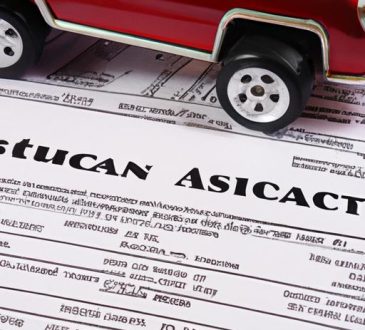
Car insurance is something we all need to ensure our vehicles are protected in case of accidents or damages. But what about mechanical problems? Can car insurance help cover those unexpected repairs and breakdowns? In this article, we’ll dive into the world of car insurance and explore whether it provides coverage for mechanical problems.
Introduction
Car insurance, in its essence, is a financial protection that covers the costs associated with accidents, damages, or theft of your vehicle. It acts as a safety net, providing peace of mind and financial security when the unexpected occurs. While car insurance is a crucial aspect of owning a vehicle, it’s important to understand its limitations when it comes to mechanical problems.
As a responsible car owner, it’s essential to grasp the ins and outs of your car insurance policy. By doing so, you can make informed decisions and avoid potential pitfalls. Let’s delve deeper into the intricacies of car insurance coverage for mechanical problems and shed light on what you should know.
Definition of Car Insurance and Its Purpose
Car insurance, also known as auto insurance or motor insurance, is a contract between you and an insurance company. It offers protection against financial losses resulting from accidents, damages, or theft involving your vehicle. The purpose of car insurance is to provide financial support and cover the expenses incurred in repairing or replacing your car, as well as addressing any liability claims.
Importance of Understanding Coverage Limitations
While car insurance is designed to safeguard you and your vehicle, it’s vital to recognize that coverage for mechanical problems is often limited. Many car insurance policies primarily focus on accidents and damages caused by external factors, such as collisions, vandalism, or natural disasters. Mechanical problems, on the other hand, are typically considered wear and tear or maintenance issues that fall outside the scope of traditional car insurance coverage.
Understanding the limitations of your car insurance policy is crucial to avoid any unexpected surprises when it comes to mechanical breakdowns. By being aware of what is and isn’t covered, you can adequately prepare for potential repair costs and explore alternative solutions that provide additional protection.
In the next section, we’ll explore the specifics of car insurance coverage for mechanical problems and delve into the factors that influence its extent. So, buckle up and join me on this journey to uncover the truth behind car insurance and mechanical breakdowns.
Understanding Car Insurance Coverage
Car insurance policies encompass various types of coverage to protect you and your vehicle. It’s crucial to have a clear understanding of these coverage options to ensure you have the necessary protection. Let’s explore the different types of coverage offered by car insurance policies and debunk common misconceptions about coverage for mechanical problems.
Types of Coverage Offered by Car Insurance Policies
-
Liability Coverage: This type of coverage is mandatory in most states and covers damages or injuries you cause to others in an accident. It typically includes bodily injury liability and property damage liability.
-
Collision Coverage: Collision coverage helps pay for repairs or replacement of your vehicle if it’s damaged in a collision with another vehicle or object, regardless of fault. However, it generally does not cover mechanical problems that are not a direct result of a collision.
-
Comprehensive Coverage: Comprehensive coverage protects your vehicle against non-collision incidents, such as theft, vandalism, natural disasters, or hitting an animal. While comprehensive coverage is extensive, it usually excludes mechanical breakdowns.
-
Personal Injury Protection: Personal injury protection (PIP) coverage helps cover medical expenses, lost wages, and other damages resulting from an accident, regardless of fault. PIP coverage does not typically extend to mechanical problems.
Common Misconceptions about Coverage for Mechanical Problems
-
Warranty and Maintenance Misconception: Many car owners mistakenly believe that car insurance covers routine maintenance and mechanical breakdowns. However, car insurance is not designed to cover normal wear and tear or mechanical issues that arise due to lack of maintenance or aging components.
-
Extended Warranty Confusion: Some individuals confuse extended warranties with car insurance coverage. Extended warranties provide additional protection beyond the manufacturer’s warranty, specifically for mechanical and electrical failures. Car insurance, however, focuses on accidents, damages, and liability, rather than mechanical breakdowns.
Understanding the different types of coverage offered by car insurance policies and dispelling common misconceptions about coverage for mechanical problems is essential. In the next section, we’ll delve deeper into the question of whether car insurance covers mechanical problems and explore its limitations. So, let’s continue our journey to unravel the mysteries of car insurance and mechanical breakdowns.
Does Car Insurance Cover Mechanical Problems?
Explaining the Role of Car Insurance in Covering Mechanical Problems
When it comes to mechanical problems, car insurance typically has limitations in terms of coverage. Car insurance policies primarily focus on accidents, damages, and theft, rather than issues related to wear and tear or maintenance. However, it’s essential to understand that some scenarios may still be covered under certain circumstances.
For instance, if a mechanical problem leads to an accident or damage to your vehicle, your car insurance may cover the resulting repairs. This is because the insurance company assesses the situation based on the accident itself rather than the specific mechanical issue. In such cases, you can file a claim and potentially receive compensation for the repair costs.
Limitations of Coverage for Mechanical Breakdowns
Car insurance policies typically exclude coverage for mechanical breakdowns that occur due to regular wear and tear or lack of maintenance. These issues are considered the responsibility of the vehicle owner. It’s crucial to differentiate between accidents caused by mechanical failures and mechanical problems arising from normal usage.
Suppose your car breaks down on the road due to an engine failure caused by a lack of oil changes or regular maintenance. In that case, your car insurance is unlikely to cover the repair costs. Mechanical breakdowns that result from negligence or improper maintenance fall outside the scope of coverage provided by most car insurance policies.
Factors Influencing Coverage for Mechanical Problems
Several factors influence the extent of coverage for mechanical problems under car insurance. Firstly, the specific terms and conditions of your policy play a critical role. It’s essential to review your policy documents and understand the exclusions and limitations related to mechanical breakdowns.
Secondly, the age and condition of your vehicle can impact coverage. Older cars or vehicles with pre-existing mechanical issues may have limited or no coverage for mechanical breakdowns. Insurance companies consider these factors to determine the level of risk associated with providing coverage for potential mechanical problems.
Lastly, some insurance providers offer additional coverage options, such as extended warranties or mechanical breakdown insurance. These specialized policies can provide coverage specifically for mechanical problems, offering an alternative solution for car owners seeking more comprehensive protection.
In the next section, we’ll explore the difference between extended warranties and mechanical breakdown insurance, helping you understand if these options are worth considering. So, let’s continue our journey to unravel the mysteries of car insurance coverage for mechanical problems.
Extended Warranty and Mechanical Breakdown Insurance
When it comes to securing additional coverage for mechanical problems, two options often come to mind: extended warranty and mechanical breakdown insurance. While they may sound similar, there are key distinctions between the two. Let’s explore these options and understand how they can provide coverage for mechanical problems.
A. Differentiating between Extended Warranty and Mechanical Breakdown Insurance
Extended warranty and mechanical breakdown insurance are both types of additional coverage that can be purchased to supplement your car insurance policy. However, their coverage and terms differ.
Extended warranty, also known as a vehicle service contract, is typically offered by the manufacturer or a third-party provider. It is an extension of the original warranty and covers repairs and replacements for specific components of your vehicle. Extended warranties often have specific time limits or mileage restrictions.
On the other hand, mechanical breakdown insurance is a separate insurance policy that covers repairs resulting from mechanical failures not caused by accidents or collisions. It is usually offered by insurance companies and may have different coverage options depending on the provider.
B. How These Options Provide Coverage for Mechanical Problems
Both extended warranty and mechanical breakdown insurance provide coverage for mechanical problems that may not be covered by your standard car insurance policy.
Extended warranty covers repairs or replacements for specific components of your vehicle, such as the engine, transmission, or electrical system. This can be beneficial when unexpected mechanical failures occur, as the costs of these repairs can be significant.
Mechanical breakdown insurance, on the other hand, extends coverage to a broader range of mechanical failures. It can include repairs for components like the air conditioning system, suspension, or braking system. This insurance can be particularly useful for older vehicles that may be more prone to mechanical issues.
C. Pros and Cons of Obtaining Additional Coverage
Obtaining additional coverage through extended warranty or mechanical breakdown insurance has its advantages and disadvantages. Let’s take a closer look at some of the pros and cons.
Pros of extended warranty:
- Provides peace of mind against costly repairs
- Can be transferred if you sell your vehicle
- May offer additional benefits such as roadside assistance
Cons of extended warranty:
- Can be expensive, especially for high-end vehicles
- May have limitations and exclusions in the coverage
- Requires careful consideration of the terms and conditions
Pros of mechanical breakdown insurance:
- Offers coverage for a broader range of mechanical failures
- Can be more flexible in terms of vehicle age and mileage
- Provides financial protection for older vehicles
Cons of mechanical breakdown insurance:
- May have deductibles and coverage limits
- Requires careful evaluation of the policy terms and conditions
- Can add an extra cost to your overall insurance expenses
Considering these pros and cons, it’s essential to evaluate your vehicle’s age, condition, and your budget before deciding whether extended warranty or mechanical breakdown insurance is the right choice for you. By understanding these options, you can make an informed decision and ensure that you have the necessary coverage for potential mechanical problems.
In the next section, we’ll explore alternative solutions for dealing with mechanical problems and how they can complement your car insurance coverage. So, let’s keep the engine running and continue our journey towards comprehensive protection.
Alternative Solutions for Mechanical Problems
When it comes to dealing with mechanical problems, car insurance may not always be the answer. Fortunately, there are alternative solutions that can help mitigate the financial burden of unexpected repairs. Let’s explore some of these options:
A. Routine Maintenance and Prevention to Avoid Mechanical Breakdowns
One of the best ways to avoid costly mechanical breakdowns is through regular maintenance and prevention. By following the manufacturer’s recommended maintenance schedule, you can ensure that your vehicle is in optimal condition. This includes regular oil changes, tire rotations, and inspections of crucial components like brakes, belts, and hoses. By staying proactive and addressing minor issues before they escalate, you can potentially save yourself from major repair expenses.
B. Seeking Manufacturer Recalls or Warranties for Mechanical Issues
Manufacturers understand that sometimes mechanical problems can arise due to manufacturing defects. In such cases, they may issue recalls or provide warranties to cover the costs of repairs. It’s important to stay informed about any recalls related to your vehicle and take advantage of them if necessary. Additionally, check your manufacturer’s warranty to see if it covers any potential mechanical issues. By utilizing these resources, you can potentially have your mechanical problems addressed at little to no cost.
C. Utilizing Third-Party Warranty Providers for Coverage
If your car insurance policy doesn’t offer coverage for mechanical problems, you may consider obtaining a third-party warranty. These warranties provide additional protection and coverages beyond what your car insurance policy includes. Third-party warranty providers offer various plans that cater to different needs and budgets. It’s advisable to thoroughly research and compare different providers to find a warranty that best suits your requirements.
Remember, prevention is key when it comes to mechanical problems. Regular maintenance, staying informed about recalls, and exploring third-party warranty options can help you prepare for unexpected repairs. While car insurance may not cover mechanical breakdowns, these alternative solutions can offer peace of mind and financial protection.
In the next section, we’ll wrap up our discussion and summarize the main points we’ve covered throughout this article. So, stay tuned for the conclusion, where we’ll tie it all together and provide valuable insights into navigating car insurance coverage for mechanical problems effectively.
Conclusion
In conclusion, understanding the extent of car insurance coverage for mechanical problems is crucial for every car owner. While car insurance primarily focuses on accidents, damages, and theft, it typically does not provide comprehensive coverage for mechanical breakdowns. It’s important to be aware of the limitations of your policy and explore alternative solutions to protect yourself from unexpected repair costs.
By maintaining routine maintenance and taking preventative measures, you can minimize the risk of mechanical problems and prolong the lifespan of your vehicle. Additionally, it’s worth exploring manufacturer recalls or warranties that may cover specific mechanical issues. Remember to also consider third-party warranty providers for additional coverage options.
In the world of car insurance, knowledge is power. By understanding the intricacies of your policy and exploring other avenues for mechanical problem coverage, you can make informed decisions that align with your needs and budget. Remember, insurance.codepel.com is here to assist you in navigating the complex world of car insurance and finding the best coverage options for your specific requirements.
So, the next time you encounter a mechanical problem with your vehicle, you’ll be equipped with the knowledge to handle it effectively. Stay informed, stay protected, and drive confidently knowing you have the right coverage for your car’s needs.



